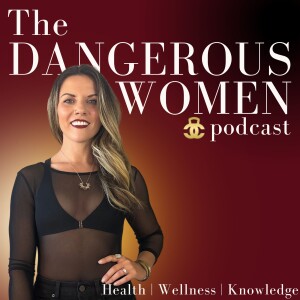
Friday Aug 16, 2024
Mastering Boundaries for Better Mental Health with Christie Ashbeck
- Introduction to Boundaries
- Defining Boundaries
- The Spectrum of Boundaries
- Setting Verbal Boundaries
- Psychological Boundaries and Self-Protection
- Navigating Emotional Responses
- Healthy vs. Unhealthy Boundaries
- Grandiosity and Shame in Relationships
- Implementing and Maintaining Boundaries
- Consequences and Boundary Enforcement
- Boundaries in Different Relationships
- Challenges and Strategies in Boundary Setting
- Conclusion and Final Thoughts
Prior to becoming a mental health professional and eventually starting my own counseling practice in Gold Canyon, AZ, I lived in Wyoming for 23 years where I raised and trained horses and competed in rodeo events. In 2001, I started an equine therapy business called “Whole Horse Connection,” where I utilized and taught equine massage therapy, and other alternative treatments, to heal horse’s physical ailments, as well as their nervous system disruptions, also known as “trauma.” Horses are similar in humans in that they are “herd” animals, and their ability to stay and feel safe in their environment is directly related to the health of the herd they run with (aka family). Because of my experience in treating traumatized equines, I became keenly interested in treating trauma in humans, as both species share equal disruptions to well-being, but with entirely different presentations. Horses tend to release their trauma more readily, while humans, with the help of their larger, more “developed” brains, tend to hold onto their trauma much longer, as they believe it is a directly related to who they are and what they “deserve.” This is known as “complex trauma,” which horses do not have.
I have a specialized interest in treating relational trauma, as I believe this is the source of complex trauma that begins with our family of origin. I am versed in issues such as codependency, love addiction/dependency, infidelity, betrayal/trauma bonds, generational trauma, and other negative consequences of relational trauma. I primarily use RLT (Relational Life Therapy) and EMDR (Eye-Movement Desensitization Reprocessing) in my treatment plans. RLT is a form of therapy that emphasizes the importance of interpersonal relationships and the ways in which our early relationships with caregivers shape our attachment styles and patterns of relating to ourselves and others throughout our lives. EMDR is a therapy that treats the emotional disturbances that we can’t link to what we are experiencing in the present moment, such as severe anxiety, depression, anger, despondence and more. Traditional talk therapy is often not enough to alleviate us from these ailments, as the cognitive part of the brain is disconnected from the emotional experience in the body, and so cannot make sense of it. Both EMDR and RLT integrate these emotional disturbances into the whole system, where they can be processed in a more effective way, with the whole system online, and aware.
No comments yet. Be the first to say something!